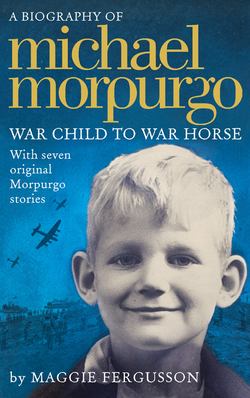Читать книгу Michael Morpurgo: War Child to War Horse - Maggie Fergusson, Maggie Fergusson - Страница 16
Оглавление
In the second half of the last century, Sussex and Kent were honeycombed with prep schools. Middle-class boys were squirrelled away in them in such large numbers that, arriving at Victoria Station at the end of the holidays, they were obliged to join a scrum of children squeezing around a blackboard to get directions to the railway carriages specially reserved for The Abbey, Ashdown House, Brambletye, Fonthill Lodge, Hazelwood, Hillsbrow …
Many of these schools are still going strong, but the Abbey long since fell victim to financial mismanagement, closed its doors to pupils, and was sold to a property developer and converted into flats. Yet from the outside the house looks exactly the same today as the one to which Michael returns often in his dreams: an ugly, late-Victorian, mock-baronial pile; a jumble of turrets and mullioned windows and brick excrescences. A weather-vane pokes up, slightly cockeyed, amidst a coppice of top-heavy chimneys, and there is a bleak stone inscription – PERSEVERANTIA – above an ivy-clad front door.
The buildings around the main house are now suburban dwellings, but their names hint at the past – one is called ‘Gymnasium’, another ‘The Old Laundry’ – and walking through the overgrown gardens that surround them is like stepping into the pages of Michael’s books. There is the stream, swelled in Michael’s imagination to a river, across which the ‘toffs’ and the ‘oiks’ fought their battles in The War of Jenkins’ Ear; and the woods in which a blond boy called Christopher made a chapel with a log altar and a straw floor, and persuaded his contemporaries that he was Jesus come again. And at the bottom of the school park is the fence over which Michael – later Bertie in The Butterfly Lion – climbed, overcome with homesickness, in a bid to run away from school.
Visiting the Abbey on a drizzly afternoon in late winter, one feels that the dripping rhododendrons are haunted by the homesickness which Michael suffered from the moment he arrived. It was worst at night. There was something about the moment that Matron, strict but kind, called, ‘Lights Out!’ that made him yearn for his mother. And though darkness was a relief, allowing the tears to roll down his cheeks unseen, sleep did not come easily. Beyond the dormitory window was a clock tower that chimed the quarters, ‘slicing up the night’; and the night was dominated by anxiety about the following day.
In a tatty copy of the Abbey school magazine from 1957, there is the text of a speech given to the boys by a visiting headmaster at their summer prize-giving. Those who have won cups must win more next year, he insists. Those who have not must work harder. And those at the bottom of their classes should resolve to be ‘at least halfway up’ by the time he visits again.
Academic success mattered. Measured in ‘pluses’ and ‘minuses’, ‘unders’ and ‘overs’, the performance of every boy was calculated weekly and read out to the whole school on a Sunday evening. Those who did well became ‘Centurions’. Those who did badly were punished. At worst, this meant a journey up the red-carpeted stairway, ‘the Bloody Steps’, to the study of fat-fingered Mr Crump, one of the three headmasters, for a caning. Canings took place amidst a collection of African tribal artefacts and hunting trophies left by the Abbey’s previous owner, gambler and mining millionaire Sir Abe Bailey: ‘Swish. Then “Ow, sir!” You had to shake Crump’s hand when it was finished.’
Michael had his fair share of punishment. Pigeonholed from the start as not especially bright – ‘Very much below the standard of the form,’ his Maths master noted at the end of his first term – he remained, throughout his time at the Abbey, somewhere around the middle to bottom of his year. He was not helped by his stutter, which grew steadily worse, tripping him up on his ‘c’s and ‘f’s and ‘w’s. If there was a poem to learn, or a string of history dates, he would lie in the early hours of the morning contriving ways of sliding over these troublesome consonants. This did not always work, and when it failed he was teased. Then he would blush, and then he would be teased again: ‘You’re going red, Morpurgo …’ Anxiety brought on chronic eczema – cracking, weeping knee and arm joints, which Matron daubed with ointment at bedtime, before feeding Michael one tablespoonful of Radio Malt, to build him up.
He might have cut a pathetic figure had not the ‘other’ Michael Morpurgo, the waggish, confident performer he has always been able to summon, come to his rescue. Perhaps it was his theatrical genes that enabled him to drop a visor of confidence over his vulnerability. At home, anyway, family and friends were enchanted by his ‘intelligence and humour and charm’.
Very quickly, the same was true at school. Once it was clear that he was not going to shine academically, he found other areas in which he could come out on top. In the Abbey magazine the achievements of ‘Morpurgo ii’ are lauded on almost every page. He is Chapel Warden and Chief Chorister. He is the only boy wheeled out to play a violin solo, ‘Highland Heather’, in the Christmas carol concert. He is in the tennis team, and he is Captain of Cricket.
